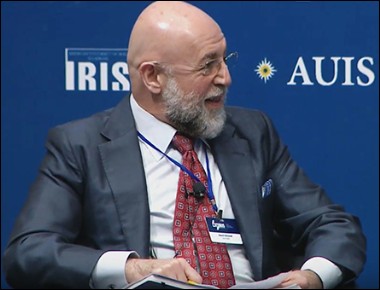First joint Forum UoS-SPU Universities Saulaimani
Main menu
Ahmed Tabaqchali MSc

© AUIS/IRIS
Born 1958 in Istanbul, Turkey. 1984, B.Sc. Mathematics, Univ. Canterbury, & 1985, B.Sc. (Hons, 1st class), Mathematics, Univ. Victoria, both New Zealand. 1991, M. Sc. Mathematics, Oxford University, UK. Adjunct Assistant Professor AUIS, Fellow at IRIS. Experienced Capital Markets professional with over 25 years experiences in US and MENA markets. Focus current research: Iraq’s economy, economic sustainability post ISIS and on the economic roots behind the rise of extremism.
Summary Ahmed Tabaqchali: The economic future of the Kurds
The future options, politically and economically, for the Kurds are now discussed within the context of the September 25th referendum and its aftermath. For the most part these are variations of the doom and gloom scenario after the losses of Kirkuk and the disputed territories -
While, these arguments have a degree of merit if one accepts the widely held view that political or formal independence is still equivalent to the concept of the right of self-
This is particularly evident in the case of the UK’s BREXIT process. The UK is discovering that seeking traditional sovereignty by breaking up from European Union (EU) is an illusion. In that to ensure the economic well-
I argued in my recent research paper for IRIS (1) “Statehood in the Kurdistan Region of Iraq through an Economic Lens” that the Kurdistan Region of Iraq (KRI) “did not have the economic capacity to become an independent state” by analyzing the region’s “Oil assets and exports, the creation of a central bank and currency, trade, debt and a balanced budget are all essential features of a future independent Kurdish state, without which no amount of political will, nationalistic messaging or international support could lead to a viable, let alone successful, secession from Iraq.”
I believe that the aftermath of the September 25th referendum, instead of narrowing the options of the Kurds, has freed them from pursuing an outdated quest for formal independence, and to seek an achievable goal of securing the rights of the Kurds “to freely pursue their economic, social and cultural development” and ensure that the peoples of Iraqi Kurdistan enjoy economic prosperity in their homeland.
The paradigm shift in seeking self-